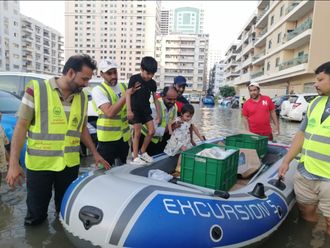Dubai: Ambulances are meant to provide life-saving medical assistance to people in real emergencies. If misused, it can mean life or death for the person who needs the service.
Knowing when not to call an ambulance is crucial because emergencies can happen to anyone any time, anywhere.
Marc Celliers, senior Health Safety and Environment trainer at Corporate Wellness, said in case of an emergency, you should immediately seek the help of a trained professional.
“In case there is someone in the crowd who knows basic first aid, encourage him to help. Some conditions can be treated without an ambulance,” the medic with 16 years of experience in the field told Gulf News.
But never be complacent nor overconfident, he cautioned.
“When you are in any doubt, call an ambulance. A lot of people wait too long before they call an ambulance only to regret it later,” he said, adding, “I’ve had people having chest pain who don’t call an ambulance thinking it will go away but it ends up as a heart attack.”
To know when to call an ambulance, see below:
It is an emergency if your answer to any of these questions is ‘yes’ or even if you are unsure:
— Does the condition look life-threatening?
— Will the condition get worse if the person is moved?
— Does the person need the specialist skills of paramedics?
Call 999/009 if the patient is:
• Unconscious
• Has convulsions or seizures
• Fainting, experiencing sudden dizziness
• Has difficulty in breathing
• Has chest pain
• Bleeding that does not stop
• Has obvious major injury or is in pain
• Has received injury to head or neck
• Has severe burns
• Is behaving strangely, confused, disorientated, slurred speech
• Severe or unusual abdominal pain
• Severe or persistent vomiting or diarrhoea
• Coughing or vomiting blood
• Has signs of poisoning or drug overdose.
Source: Dubai Corporation for Ambulance Services












